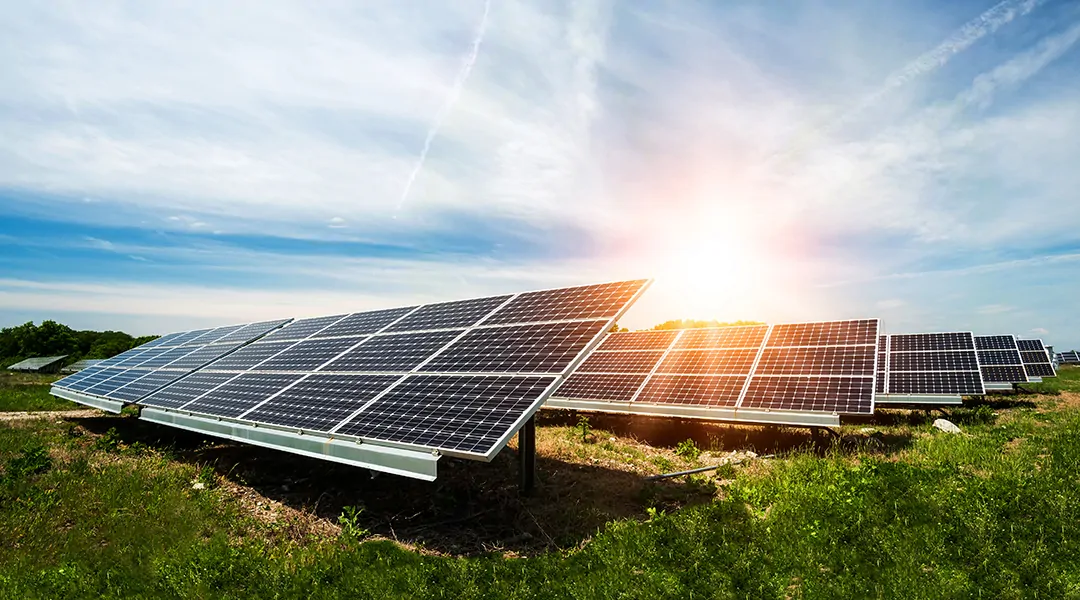Are solar panels really environmentally friendly?
There is a wealth of information available regarding the environmental benefits of various technologies, climate change is a major concern in today’s world. Solar power, which helps the environment while also saving money for many households, is one of the most talked-about options.
But how does it function? In essence, sunlight hits the panel, which takes the solar energy and turns it into electricity. Then, this is used for several things, like heating water in radiators or running electrical appliances. Batteries can even be used to store the energy for use at night.
In 2017, renewable sources accounted for two-thirds of global growth in generating electricity. Photovoltaic panels, or solar panels, are the renewable energy source with the fastest growth rate. The United States of America and China are leading the way in adopting solar power, with the United Kingdom following closely behind.
Are solar panels good for the environment? This is a crucial question that many people want to know the answer to. Fortunately, the response is yes. There are four main environmental benefits of solar panels:

Reduces dependence on the National Grid
When you use solar power, you use less energy from the National Grid. Even without batteries, daytime energy consumption no longer draws from the National Grid, reducing demand and your environmental impact. If you also install batteries, excess daytime energy can be stored and used at night.
Reduces your carbon footprint.
Solar power systems produce very little carbon dioxide or other greenhouse gases and virtually no other emissions. Instead of traveling across the country, the energy is converted directly from the source. Solar panels are good for the environment because they can ultimately significantly reduce your household’s carbon footprint.
Solar power can be used for as long as the sun exists, which is a few billion years away. There is always enough solar energy, unlike fossil fuels like oil, gas, and coal. This means there are no destructive mining or extraction processes, and there are no conflicts over the diminishing reserves of fossil fuels.
Solar panels from Fit and Forget typically have a lifespan of approximately 30 years and require little upkeep. This stands up well in comparison to systems powered by gas, coal, or oil, which require routine maintenance in addition to the production and replacement of broken parts, which has an additional negative impact on the environment.
So, are solar panels environmentally friendly?
Even though solar panels are more environmentally friendly than systems powered by fossil fuels, there are arguments in favor of them, most of which concern product development and manufacturing. It is important to note that as more people purchase solar panels, demand will encourage research and development, which will speed up the resolution of the solar energy industry’s current issues.
For instance, the rare earth metals used in solar power construction—silver, tellurium, or indium—must be recycled to reduce their impact on the environment because their initial extraction from the ground incurs an environmental cost. Now, there aren’t enough people who use solar panels to make recycling old ones financially viable. Recycling old solar panels would gain market share if more people used them.
Most construction workers are familiar with the clamp and screw system used to install solar panels on buildings’ roofs. The panels don’t get in the way of animals, birds, or insects because they use space on the roof of a building. Solar panels can also be installed with minimum invasion in a garden or field if you have sufficient land.
Despite the potentially damaging effects of a solar power plant’s construction, such as the noise of machinery, disruption of rivers, and deforestation, the long-term benefit of clean energy produced outweighs any short-term negative impacts to the environment.
Additionally, it is evident that the concerns regarding the impact of solar panels on the environment are primarily relevant to “utility scale” construction projects and do not apply to the situation of private homeowners installing solar panels on their roofs.
Environmental impact of solar
Another important point is that solar panels can be used to power mining and construction rigs, balancing out the environmental impact of those activities as they become more widespread. The good news is that using more solar panels will eventually solve the issues with them. So, it’s safe to say that solar panels are good for the environment both now and in the future.
Check out what Edanpower has to offer if you want to learn more about solar power and all the different ways you can use it in your own home to save money and protect the environment.